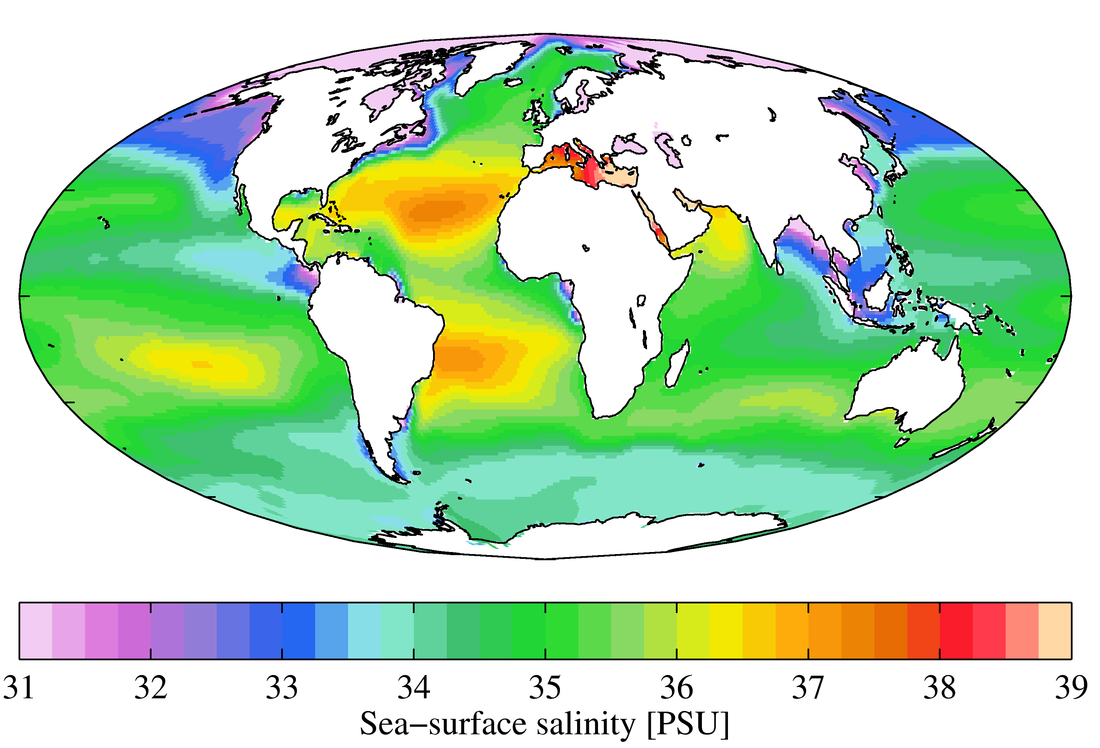On average the atlantic ocean is the saltiest of earth s major oceans

The Atlantic Ocean: Earth’s Salty Giant

The Atlantic Ocean is without a doubt one of the most fascinating bodies of water on our planet. Stretching across an incredible area of approximately 106.4 million square kilometers, it covers over 20% of the Earth’s surface, making it the second-largest ocean in the world. Boasting a wide range of unique characteristics, the Atlantic Ocean holds a pivotal position in global oceanography.
Salinity, or the amount of dissolved salts in seawater, is a crucial aspect to take into consideration when studying Earth’s oceans. When it comes to salinity levels, the Atlantic Ocean stands out from its major counterparts. On average, it is indeed the saltiest ocean on our planet.
As we delve into the intricate mechanism that defines the Atlantic Ocean’s salinity levels, it is important to understand the factors influencing this unique phenomenon. The salinity in the Atlantic Ocean primarily results from the ocean mixing with rivers, a process known as continental weathering. A substantial amount of seawater gets carried away by these rivers, transporting minerals and salts from the land into the ocean. This constant influx contributes significantly to the salinity levels of the Atlantic Ocean, making it the saltiest among its peers.

Furthermore, the geography and climate patterns surrounding the Atlantic Ocean play a vital role in shaping its saltiness. Warm waters from the Gulf Stream current, originating in the Caribbean Sea, flow northwards along the eastern coast of the United States up to the North Atlantic. As this current travels, it evaporates, leaving behind a higher concentration of salt. This continuous process further elevates the salinity levels within the Atlantic Ocean.
The unique combination of continental weathering and the Gulf Stream’s thermal effects makes the Atlantic Ocean a salty giant, distinguishing it from its oceanic counterparts. Although all oceans contain varying amounts of dissolved salts, the Atlantic’s salinity average of approximately 35 parts per thousand (ppt) surpasses that of the Pacific, Indian, and Southern Oceans.
The Atlantic Ocean’s high salinity has profound implications for Earth’s climate and marine life. It affects the density and circulation of ocean currents, influencing large-scale atmospheric circulation patterns such as the North Atlantic Oscillation (NAO) and the Atlantic Meridional Overturning Circulation (AMOC). These climate phenomena have far-reaching impacts on weather patterns, including the distribution of rainfall and temperature changes, not only along the coastline but also across continents.
Moreover, the unique salinity levels of the Atlantic Ocean create distinct habitats for marine organisms. Certain species have adapted to survive and thrive in the distinctive saline environment. From the microscopic phytoplankton that fuels the ocean’s food chain, to immense marine mammals such as the humpback whales, the Atlantic’s salty expanse sustains a diverse array of marine life.
In conclusion, the Atlantic Ocean stands tall as the saltiest of Earth’s major oceans. Its remarkable salinity levels result from the combined influence of continental weathering and the thermal effects of the Gulf Stream. The salt-rich waters play a crucial role in shaping Earth’s climate and fostering unique marine habitats. Understanding the factors that contribute to the Atlantic Ocean’s salinity allows us to appreciate the intricate balance and significance of this awe-inspiring body of water.
Sources:
Related Posts
Quick Links
Legal Stuff

